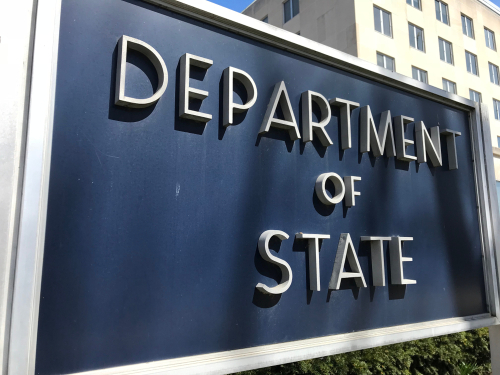
Government spending remains too high despite revenue growth
Listen To Story Above
During a Monday appearance on Newsmax TV’s “National Report,” Representative Rich McCormick (R-GA) expressed his concerns about the continuing resolution’s spending levels and questioned the likelihood of meaningful change in the coming year, given the relatively stable composition of Congress.
The Georgia congressman voiced his frustration with the reliance on continuing resolutions, noting that throughout his three-year tenure in Congress, these temporary funding measures have maintained spending at elevated COVID-era levels. “I think they’re going to have to rely on Democrat votes, quite frankly, because I think there [are] enough people that are concerned about the CR, the fact that we had four months, four months since the election to prepare for this, to actually get something passed without doing a CR,” McCormick said.
This bill is not what the American people had in mind when they voted last November. We are still spending too much, and the level of waste, fraud, and abuse is too high. While the President can – and should – save your hard earned tax dollars through the recission process, we…
— Congressman Rich McCormick, MBA MD (@RepMcCormick) March 11, 2025
He highlighted the significant fiscal imbalance, pointing out that while the government collects approximately $5 trillion in revenue, it continues to spend around $7 trillion annually, creating a deficit exceeding 30%. McCormick emphasized his preference for passing proper appropriations bills rather than resorting to continuing resolutions, though he acknowledged his reluctance to support a government shutdown.
When discussing his position on the matter, McCormick revealed he remains undecided, citing unaddressed concerns in healthcare spending. “I don’t think we’ve addressed the Medicaid problem at all. There are several states where the federal government spends — 90% of the bill goes to be picked up by the federal government,” he explained. The congressman also expressed disappointment over the lack of attention to other healthcare-related issues, including the absence of PBM reform and site neutrality measures, particularly given that healthcare represents the government’s largest expenditure category.
I voted NO on the continuing resolution because it didn’t include any funding for our southern border or rein in the excessive spending coming out of the executive branch. We have to change the way Washington works. pic.twitter.com/IBw4QlxNkX
— Congressman Rich McCormick, MBA MD (@RepMcCormick) November 17, 2023




